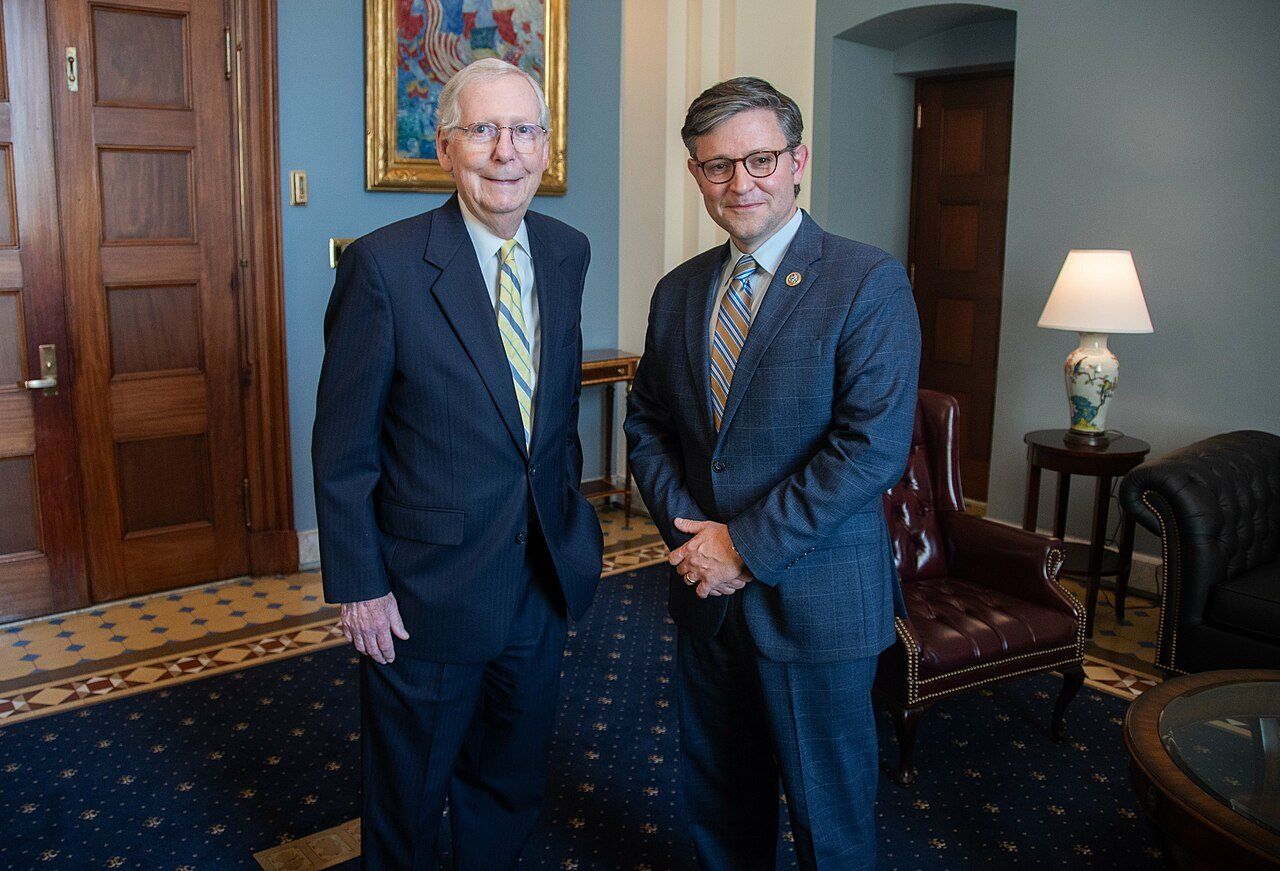A new report shows that former President Donald Trump is far from the only Republican decision-maker who could significantly harm democracy this year.
While the ex-president has openly suggested that he would terminate parts of the US Constitution, rule as a dictator "on day one" and staff government agencies with tens of thousands of political loyalists, he is still currently just a private citizen. Rather, a report from the nonpartisan organization States United suggests another major looming threat to democracy comes from current Republican members of the US House of Representatives and the US Senate.
"[T]he most misunderstood threat comes from Congress," wrote States United CEO Joanna Lydgate in an MSNBC op-ed with former House Judiciary Committee impeachment counsel Norman Eisen. "Inside the very building where our democracy came under attack three years ago, scores of election deniers still hold power."
POLL: Should Trump be allowed to hold office again?
According to States United, 171 current members of the House and Senate — approximately a full third of Congress — has trafficked in election denial conspiracy theories, with 152 election deniers in the House and 19 in the Senate. 128 sitting members of Congress voted to overturn the 2020 election on January 6, 2021. These members represent 36 states, and more than 100 of them signed now-Speaker Mike Johnson's (R-Louisiana) amicus brief seeking to throw out election results in four swing states President Joe Biden narrowly won in 2020.
Both Lydgate and Eisen noted that in the wake of the deadly January 6 insurrection, Congress passed a law raising the threshold to challenging a state's electoral votes to one-fifth of both the House and Senate. However, they noted that depending on how various Congressional elections turn out in November, that higher threshold may still be within reach. And they both warned that election deniers in Congress have plenty of other tools at their disposal to "cause trouble in many other ways."
"They could use budget powers to defund Jan. 6 prosecutions. Congress, which has a history of erratic election funding, could starve federal agencies that help protect elections. Election deniers could gin up baseless investigations and haul election administrators to Capitol Hill to berate them for doing their jobs in 2024," they wrote. "The Senate could refuse to confirm judges or executive branch officials who don’t give lip service to the 'big lie.' And election deniers with a congressional platform could further poison public trust in elections with more lies."
"Elections are administered by state and local officials, but Americans understand that Congress has substantial influence," they added. "In new polling from States United, 59% of people said Congress has a significant amount of power when it comes to elections. What they say — and do — about our elections really matters."
READ MORE: Federal court hands major loss to Arizona Republican election deniers
Click here to read Lydgate and Eisen's op-ed in full.
From Your Site Articles
- Expect an 'erratic path for policy' under second Trump presidency: expert ›
- The right-wing 'authoritarian' 2025 project aiming to destroy democracy: column ›
- 'The most misunderstood threat' to democracy can still be stopped: legal experts ›
- Ohio indictments provide a better picture of squalid relationships that spurred massive scandal - Alternet.org ›
- 'Mischief': This right-wing tactic 'raises risk of throwing the 2024 election into chaos' - Alternet.org ›
Related Articles Around the Web
